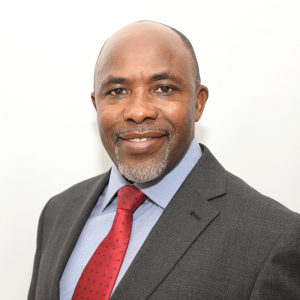Sanibonani; Dumelang; Mangwanani; Shani; Bom Dia; gutten morgen;
Very warm greetings to all, especially our friends from the region.
On behalf of the UN Family in Eswatini, I am delighted to greet and welcome you all to this Regional Workshop on the UNESCO Man & Biosphere (MAB) Programme in Southern Africa.
It is indeed great to have so many of you, coming together from our region, to focus on the important issue of our time: biodiversity and conservation. On the occasion of the seventy-fifth anniversary of the United Nations, Member States agreed that the challenges facing our world are interconnected, across borders and all other divides, and that these challenges can only be addressed by an equally interconnected response. I applaud UNESCO, partners and all of you for coming together and so aptly demonstrating the wisdom of an interconnected response.
The UN Secretary-General, Mr. Antonio Guterres has constantly reminded us that “a healthy planet is critical for achieving the Sustainable Development Goals” and has repeatedly urged Member States to work harder to reverse biodiversity loss, to improve human health, realize sustainable development and address the climate emergency.
Thus, in his seminal report, Our Common Agenda, Secretary-General Guterres pleads that, “We are at an inflection point in history. In our biggest shared test since the Second World War, humanity faces a stark and urgent choice: a breakdown or a breakthrough”
He further says that “The disastrous effects of a changing climate – famine, floods, fires and extreme heat – threaten our very existence.”
Given the alarm bells that have been sounded all around us, we do well to remember the wisdom that, “We did not inherit Earth from our ancestors; we have borrowed it from our children”. We must spur ourselves to urgent action!
This meeting and the initiative it espouses represents one commendable response by UN Member States who have come together to discuss approaches to biodiversity conservation, education and research and sustainable use of natural resources to foster socio-economic development in communities.
The loss of biodiversity-rich ecosystems is a major cause of concern everywhere. According to a 2020 Protected Planet Report issued by UNEP, the international community has made major progress towards the global target on protected and conserved area coverage, but has fallen far short on its commitments on the quality of these areas.
The loss of biodiversity reduces the capacity of ecosystems to provide goods and services, especially for water retention and flood reduction, thus exposing the population to climate and natural disasters, as experienced recently by this region with the recent Tropical Cyclone Eloise.
Biological diversity resources are not only important for the environment; they are also the pillars upon which our lives depend. For example, fish provide 20 per cent of animal protein to about 3 billion people, globally. Plants provide over 80 per cent of the human diet while as many as 80 per cent of people living in rural areas in developing countries rely on traditional plant‐based medicines for basic healthcare.
I would therefore like to appreciate the contribution of the MAB Programme in addressing some of these challenges by bringing together communities, governments, the natural and social sciences to explore and entrench the rational and sustainable use and conservation of the resources of the biosphere for the improvement of the overall relationship between people and their environment.
Furthermore, this programme signals your common determination to promote peace and save our planet by addressing issues of climate change, biodiversity loss, and poverty, deforestation, land degradation through sustainable development.
On behalf of the UN family, I would like to express our sincere appreciation to the German Commission for UNESCO and the Government of Eswatini for contributing towards the organisation of this workshop. As the UN in Eswatini, we value our continued working relationship with the National Commission for UNESCO, the UNESCO Southern Africa Regional Office, and the German Commission for UNESCO to support the implementation of the MAB Programme in Eswatini since its inception in 2018. You can count on our continued support.
I would also like to extend our sincere appreciation to all the other partners in this programme here in Eswatini, especially line ministries, such as the Ministry of Information, Communication and Technology, Ministry of Education and Training, Ministry of Tourism and Environmental Affairs, which are coordinated by the Eswatini National Commission for UNESCO, for ensuring the effective implementation of the MAB Programme in Eswatini as well as strengthening partnership and collaboration with development partners.
I am therefore pleased to reiterate the UN commitment and support to the Government in protecting biodiversity as a nature-based solution for achieving climate and sustainable development goals.
I wish you all a productive workshop and a safe stay in the Kingdom of Eswatini to our international participants.
Siyabonga kakhulu! Kea Leboha!
I thank you.








